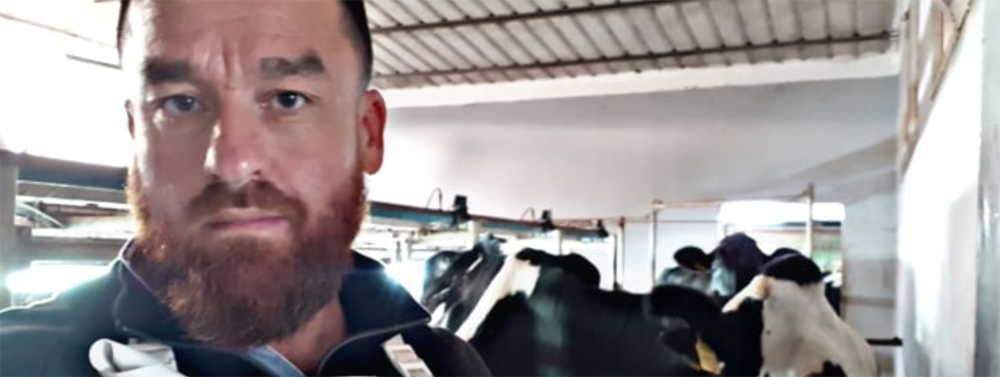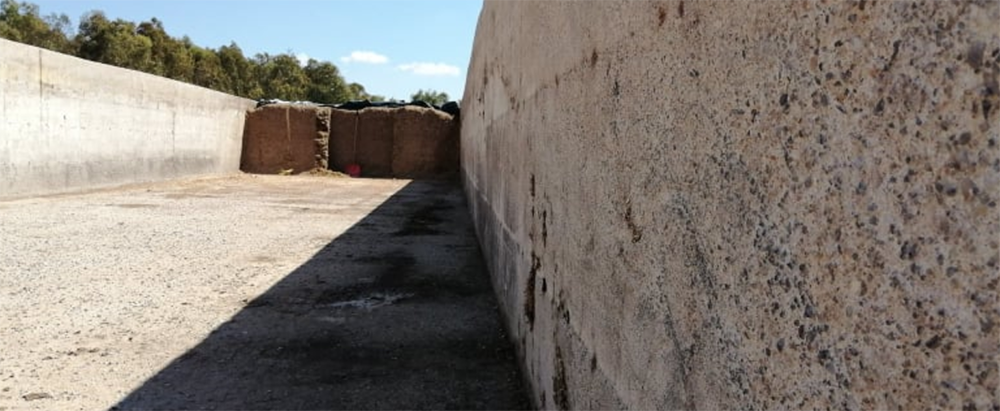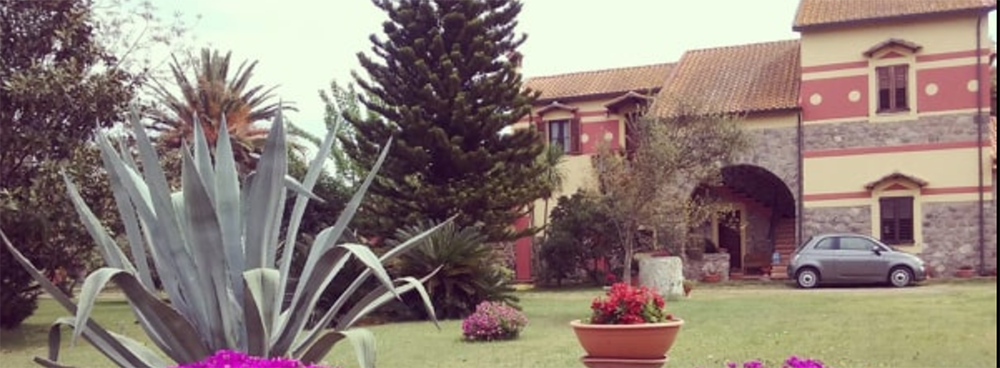"It all started in 1929 with my grandparents, an employee of the municipality of Venice and a housewife who arrived at the Marrubiu station, where they were entrusted him with a cart, two oxen, two cows, two pigs and a few chickens. They were essentially deportees, children of the great crisis of 1929. They settled here in this house. The farmer lived upstairs. Downstairs two families of settlers. They knew nothing about farming and sharecropping”.
The garden where Paolo Pinos tells the story of his farm is very different from the landscape accompanied by the Istituto Luce's hyperbolic propaganda: “Endless sandy expanses crossed by treacherous winds, swamps in which malaria weaved daily death plots, spectral dune rides, the dismal face of this desolate landscape. Very rarely it came alive, afraid of failing, while living, an inexorable commandment of nature. A few dry straw huts, a dozen predestined men devoted to fishing and pastoralism, and their presumption of resignation, the shadow of a destiny". The grass, magnolias, araucarias, mulberries, camellias and cypresses surround the geometries of the colonial building. Frequent lorries loaded with goods or tractors, slow and lonely, pass by on the Roman chessboard of the streets. The reclamation, begun in the Giolittian era, ended in 1928. "Village Mussolini" became "Mussolinia of Sardinia", an autonomous municipality run by the prefect and the podestà, in 1930. It would have become Arborea with the fall of the fascist regime, in 1944, keeping in the toponym the image of rebirth. In 1950 many families left the former colony to return to Veneto, Friuli and Lombardia. The depopulation coincided with the decrease in the number of companies and the increase of family members employed within the remaining ones. The Pinos decided to stay, to be part of that mosaic of surnames, faces and accents that feed the identity of Arborea.
"I took over the company eighteen years ago, after the death of my father. I always wanted to do it. Already at the age of fourteen, while attending the agricultural institute, I took part in the activities. But I've always had a different approach than the Italian tradition. Let's say I have my foot on the brake, not on the accelerator. I have always seen agriculture within an organic sustainability plan", explains Pinos, board of directors member in the Arborea Producers Cooperative, in the defense council on intensive productions and for seven years delegate of LIPU (Italian Bird Protection League). Commitments force him set the alarm at 5.30am. Before devoting himself to office papers, Paolo distributes the fodder and takes his 150 cows to the milking room.
The cramped bunks, which prevented strolling, have been replaced with straw bedding in the open space, according to the old customs. The Frisian breed was joined by the Jersey, smaller, producing less milk but of higher quality, more resistant to diseases and heat, and above all capable of drastically reducing the consumption of water and forage. Large corn fields surround the company, entirely destined to forage production. Corn is mixed with rye hay, which seasonally replaces it in the crop, and supplemented with alfalfa, soy, corn flakes and barley, a mash with an alcoholic smell that is compacted in large rectangular tanks. The fields have not been weeded, they have not met insecticides or phytosanitary: "We have carried out the long and costly experimentation of the bacillus turingensis, with surprising results. The bacillus mushroom spore is completely harmless both for humans and for useful insects, while releasing toxins it affects the larvae damaging their digestive system, bringing them to death in a few days. It was already used in Sardinia for hazelnut and other crops".
Irrigation methods also follow the same sustainable philosophy. The type of corn was selected due to the low water requirements. Drip systems have been adopted: “We have understood that it is not convenient, both for the leaching of the stretches that end up in the water table, and because all the nutrients present in the soil are lost. Water must be given only when needed.
The sensitivity of our consumers is moving towards products that guarantee sustainability to the territories", states Pinos.
Between 2012 and 2017 Pinos was one of the protagonists of the spontaneous committees that led the population of Arborea to win against the attempted exploratory drilling led by Saras spa, which had identified near the pond of S'Ena Arrubia, a Ramsar site, important mineral stocks. "The so-called Eleonora dispute was fundamental to understand that the population is always at the forefront when it comes to touching on the issue of environmental health. The presence of farm animals in this patch of land is very strong, and all possible methods must be adopted to limit their impact. We must carefully manage the livestock waste. We need to find alternative surfaces where we can concentrate both the shedding and the cultivation of fodder crops. We are working in this direction. Many of us carry on the same vision. Sometimes the problem is to convey the message to those who for two generations have done agriculture in another way".
Paolo’s organic belonging to the territory can be measured in his activity as a guide to the beauties of S'Ena arrubia for the pupils of the schools, and in his "hotel", a sort of large aviary that hosts cereopsids, black swans, the Brazilian teal, mandarin duck, carolina duck, the hunchback of Jamaica and red-billed dendrocigne. Forced by the commitments to abandon his office as president of LIPU, he still answers the calls of those who find birds in difficulty in the area. Sometimes careless help from tourists. "I raise them in this small lake, if they are native species at the end of the development period, when they are able to fly, I release them in the pond"

The Island made of mussels in Corru Mannu's pond began to be populated by birds
Little tern, common tern, sandwich tern, rosy gull and black-winged stilt are some of the bird species that have found a home in Corru Mannu in recent weeks. Thanks to…

Sardinian Wetlands, the best way to protect them is "to manage them"
Cagliari, 04.02.2023 – Le zone umide sono ecosistemi acquatici sempre più rilevanti, conoscerli meglio è il primo passo per tutelarli, ma non è tutto. “Serve uno strumento di gestione” per…

The II D from Terralba Institute visited the Old Tower of Marceddì as prize for Terre d'Acqua school contest 2022
Learning about the role of these precious and very important ecosystems, as well as the specificities of the large wetland area of Oristano. In recent days we have accompanied the…

Maristanis was showcased at the Ramsar COP 14 on wetlands during a side event
The 14th meeting of the Ramsar Wetlands Conference (COP14) was held in Geneva from 5 to 13 November 2022, simultaneously also in Wuhan, China. At the International Conference Center in Geneva (CICG) all…

Learning from the Maristanis's model in the ENSERES's visit exchange
Two days to study an integrated management model of marine-coastal systems, two days to strengthen ties and develop new strategies for a sustainable future of the Mediterranean. The Italian stage…

A step forward for the Maristanis project, towards the Regional Park of wetlands in Sardinia
The Municipal Council of Oristano, on the proposal of the Councilor for the Environment Maria Bonaria Zedda, has launched the participatory process and the preparatory actions necessary for the establishment…

Evaluating ecosystem services by the TESSA Methodology in Arborea
How to understand the effects on natural capitals and actual and potential state changes of individual sites important in promoting decisions to support both biodiversity conservation and ecosystem service provision?

Terre D'Acqua 2022, the winners of the school contest within the Maristanis Project
With 87 works, of which 84 in the drawing category and 3 in the comics category, the MEDSEA Foundation's Terre D’Acqua 2022 Competition ends. The school contest took place from February…

The Sardinian farms met in Arborea under the sign of Sustainability
This is the year of relaunch for the La Fiera dell’agricoltura di Arborea (Agricultural Fair of Arborea), one of the most important thematic fairs in Sardinia that promotes the productive, agro and…

Maristanis in the news: Rai and Italia 1 dedicated ample space to the Maristanis Project
The Italian press gave ample space to the Maristanis project in recent months, the Oristanese wetlands and its most important project Maristanis were told in various national and local television reports on…

The winner of the World Wetlands Day in Sardinia 2022 Contest
With a picture taken in the Oristanese lagoons representing a group of flamingos and the sentence "They come / They come back / Sometimes they stop / Like nomads /…

Over 700 visitors for the World Wetlands Day Calendar
Over 700 visitors in the World Wetlands Day collective calendar, put together by the MEDSEA Foundation, as part of the Maristanis project last February, with the aim of promoting the precious…

The World Wetlands Day 2022 in Sardinia lasts a month, the events Calendar
As every year, the World Wetlands Day on the anniversary of the RAMSAR convention (of 1971, Feb. 2nd) calls and Sardinia, in particular the Oristanese area, replies within the Maristanis project that…

World Wetlands Day in Sardinia, from 2 to 27 February join the competition #WWDSardegna on Instagram
In the occasion of the World Wetlands Day which celebrates ponds and lagoons in the world next February 2, the MEDSEA foundation launches the contest on wetlands in Sardinia with the hashtag #WWDSardegna to…

MAVA Steering Committee in Provence: Sardinia was promoted with the Maristanis project
MEDSEA foundation, which has been carrying out the Maristanis project in the Oristano area in Sardinia since 2017, attended last week the yearly meeting of the MAVA steering committee. The session took place from 16 to 17 December 2021 in Châteauneuf-le-Rouge, in the Provence-Alpes-Côte d'Azur region, and gathered together the…

Terre d'Acqua, a wetlands school competition for students in the Oristanese
On February 2, the World Wetlands Day will be celebrated once again the Oristanese wetlands region. To recall the central role of wetlands in addressing climate and environmental crisis and to raise awareness of the importance of these basins especially in this west coast side…
- 1
- 2
- 3
- 4



